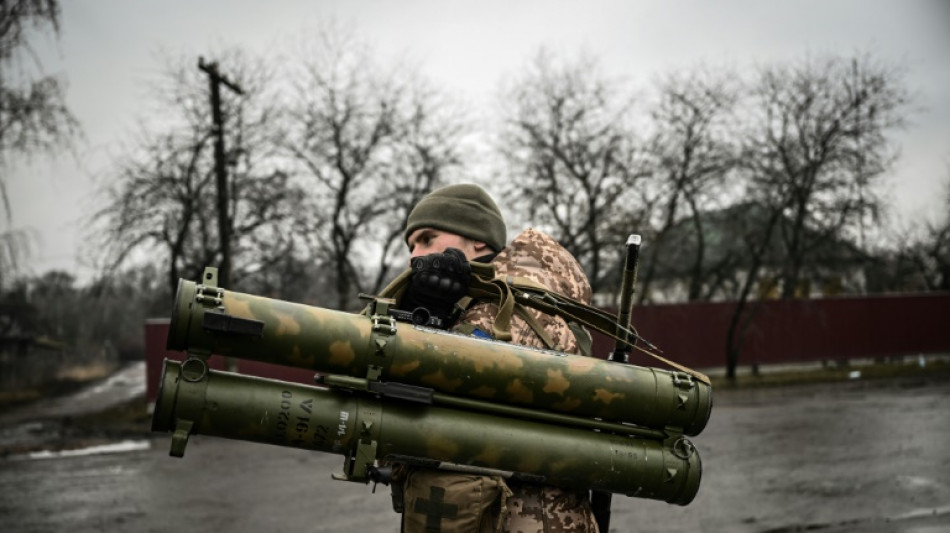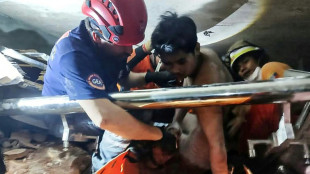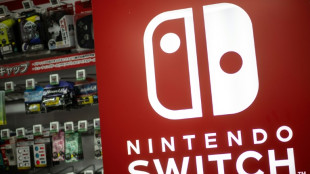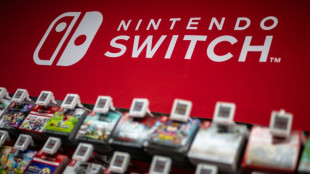

Russia, Ukraine agree civilian evacuation corridors as fighting rages
Russia and Ukraine agreed Thursday to create humanitarian corridors for civilians fleeing intensifying fighting as Russian President Vladimir Putin said Moscow's advance was "going to plan" and to schedule.
The agreement was the only tangible progress from a second round of talks between Moscow and Kyiv, according to an adviser to Ukraine's President Volodymyr Zelensky, and it was not immediately clear how they would work. A Russian negotiator, nationalist lawmaker Leonid Slutsky, confirmed the initiative and said it would be implemented soon.
The two sides met after the fall of the first major Ukrainian city to Russian forces, with Putin apparently unwilling to heed a global clamour for hostilities to end as the war entered its second week.
Putin again said Russia was rooting out "neo-Nazis", adding during the televised opening of a national security council meeting that he "will never give up on (his) conviction that Russians and Ukrainians are one people".
He earlier told French President Emmanuel Macron that Moscow "intends to continue the uncompromising fight against militants of nationalist armed groups", according to a Kremlin account of their call.
Zelensky has called on the West to up its military assistance, after NATO members ruled out enforcing a no-fly zone for fear of igniting a direct war with nuclear-armed Russia.
"If you do not have the power to close the skies, then give me planes!" Zelensky told a news conference.
"If we are no more then, God forbid, Latvia, Lithuania, Estonia will be next," he said, adding that direct talks with Putin were "the only way to stop this war".
The EU has offered fighter jets already, and a source in Berlin said the German government was planning to deliver another 2,700 anti-aircraft missiles to Ukraine.
The 27-nation bloc agreed further to approve temporary protection for all refugees fleeing the war in Ukraine -- numbered by the United Nations at more than one million.
At the talks at an undisclosed location on the Belarus-Poland border, both sides shook hands across a table at the outset, the Ukrainian delegates in military attire and the Russians in more formal suits.
A first round of talks on Monday also yielded no breakthrough, and Kyiv says it will not accept any Russian "ultimatums".
The invasion, now in its eighth day, has turned Russia into a global pariah in the worlds of finance, diplomacy, sports and culture.
The UN has opened a probe into alleged war crimes, as the Russian military bombards cities in Ukraine with shells and missiles, forcing civilians to cower in basements.
Addressing the Putin regime in a video statement, Zelensky said: "You will reimburse us for everything you did against our state, against every Ukrainian, in full."
Thirty-three people died Thursday when Russian forces hit residential areas, including schools and a high-rise apartment block, in the northern Ukrainian city of Chernihiv, authorities said.
- 'Just like Leningrad' -
Zelensky claims thousands of Russian soldiers have been killed since Putin shocked the world by invading Ukraine, purportedly to demilitarise and "de-Nazify" a Western-leaning threat on his borders.
Moscow said Wednesday that it has lost 498 troops, and Kremlin spokesman Dmitry Peskov said Putin praised their sacrifice.
The Kremlin has been condemned for likening the government of Zelensky, who is Jewish, to that of Germany in World War II.
While a long military column appears stalled north of Ukraine's capital Kyiv, Russian troops seized Kherson, a Black Sea city of 290,000 people, after a three-day siege that left it short of food and medicine.
Russian armoured columns from Crimea -- annexed by Moscow in 2014 -- pushed deep into the region around Kherson, triggering fighting that left at least 13 civilians dead.
Nine Ukrainian soldiers were also killed, the Kherson regional administration said.
Russian troops are also besieging the port city of Mariupol east of Kherson, which is without water or electricity in the depths of winter.
"They are trying to create a blockade here, just like in Leningrad," Mariupol mayor Vadym Boichenko said, referring to the brutal Nazi siege of Russia's second city, now re-named Saint Petersburg.
Ukrainian authorities said residential and other areas in the eastern city of Kharkiv had been "pounded all night" by indiscriminate shelling, which UN prosecutors are investigating as a possible war crime.
Oleg Rubak's wife Katia, 29, was crushed in the rubble of their family home in Zhytomyr, west of Kyiv, by a Russian missile strike.
"One minute I saw her going into the bedroom. A minute later there was nothing," Rubak, 32, told AFP amid the ruins in the bitter winter chill.
"I hope she's in heaven and all is perfect for her," he said, adding through tears, "I want the whole world to hear my story."
- Junk status -
UN emergency relief coordinator Martin Griffiths urged Russia to allow relief workers to help Ukraine's people.
"Protect civilians, for God's sake, in Ukraine; let us do our job", he told AFP in Geneva.
The UN's International Atomic Energy Agency urged Russia to "cease all actions" at Ukraine's nuclear facilities, including the site of the 1986 Chernobyl disaster.
Putin now finds himself an international outcast, his country the subject of swingeing sanctions that sent the ruble into further free-fall Thursday.
Russia's central bank -- whose foreign reserves have been frozen in the West -- imposed a 30-percent tax on all sales of hard currency, following a run on lenders by ordinary Russians.
The unfolding financial costs were underlined as ratings agencies Fitch and Moody's slashed Russia's sovereign debt to "junk" status.
Turmoil deepened on markets more broadly. European stocks slid and oil prices approached $120 per barrel.
Russia's sporting isolation worsened as it lost the right to host Formula One races. The International Paralympic Committee, in a U-turn, banned Russians and Belarusians from the Beijing Winter Games.
- Leaving everything behind -
Many Ukrainians have now fled into nearby countries, according to the UN refugee agency's rapidly rising tally.
"We left everything there as they came and ruined our lives," refugee Svitlana Mostepanenko told AFP in Prague.
Nathalia Lypka, a professor of German from the eastern Ukrainian city of Zaporizhzhia, arrived in Berlin with her 21-year-old daughter.
"My husband and son stayed... My husband already served in the army, and he had to return to duty," she said, before boarding a train for Stuttgart where friends were waiting.
Russian authorities have imposed a media blackout on what the Kremlin euphemistically calls a "special military operation" that Western analysts say has become bogged down.
Two liberal media groups -- Ekho Moskvy radio and TV network Dozhd -- said they were halting operations, in another death-knell for independent reporting in Putin's Russia.
But Russians have still turned out for large anti-war protests across the country, braving mass arrests in a direct challenge to the president's 20-year rule.
Nearly 7,000 Russian scientists, mathematicians and academics had as of Thursday signed an open letter "strongly" protesting Putin's war in Ukraine.
burs-jit-gw/har
A.Romano--RTC



